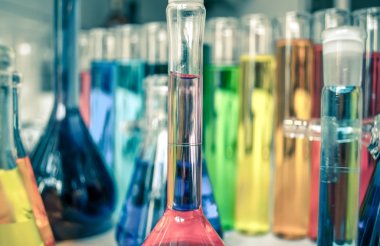Modern advances in research and development have helped several industries. However, these improvements have certain environmental problems, particularly concerning lab research liquids.
Considering where to buy research liquids responsibly is vital for those interested in mitigating these environmental concerns. This article describes how these research materials impact the environment and offers solutions for reducing their harmful effects.
Understanding the Basics
Before diving into the environmental consequences, it is essential to comprehend the principles of research liquids. These very specialised chemicals were developed for scientific study. They can range from solvents to bioactive compounds, each with unique properties and potential environmental impacts.
Pollution of Water Bodies
One of the main concerns when employing research liquids is the potential for water body pollution. If these liquids are not properly disposed of, they might end up in rivers, lakes, and oceans, threatening aquatic life. Research chemicals can disrupt the natural balance and decrease biodiversity, harming marine ecosystems.
Air Pollution
Some research fluids can contribute to air pollution when released into the atmosphere. For instance, volatile organic compounds (VOCs) cause ground-level ozone formation, which harms human health and can kill vegetation.
Soil Contamination
Another problem with research liquids is soil contamination. If research fluids enter the soil, they can kill plants and degrade the soil’s quality. This could also impact any species that consume these plants, including the local flora.
Measures to Minimise Impact
The environmental impacts of research liquids can be minimised with a little bit of care and concern. Here are some steps to take:
Proper Disposal Methods
Research liquids must be disposed of properly to minimise the environmental impact. Laboratories and research facilities should follow the disposal guidelines for each specific chemical. Usually, research chemicals are disposed of safely by landfilling, neutralisation, and incineration.
Recycling and Reusing
Researchers recommend recycling and reusing research fluids. This reduces costs while also having a lesser negative effect on the environment. These liquids can be cleaned and prepared for reuse in specialised facilities, producing the least amount of wastage possible.
Promotion of Green Alternatives
Green chemistry is a relatively new field that focuses on developing products and methods that reduce or eliminate the usage and manufacturing of hazardous substances. By advocating and implementing greener options, laboratories can significantly reduce the environmental effects of their operations.
The Role of Consumers and Companies
We, as customers, need to comprehend how our purchases impact the environment. When obtaining research fluid, institutions and individuals should favour companies that adhere to environmental rules and place a high value on sustainability.
Businesses are also essential in shaping the environmental narrative. They are prepared to invest in environmentally friendly alternatives and support sustainable activities. By leading by example, businesses can create industry standards prioritising environmental protection.
Concluding Note
A well-known brand in the research liquid sector called Lotilabs is a great example of how companies can take the initiative to work toward a greener future. Lotilabs highlights the importance of balancing scientific advancement and ecological responsibility by promoting eco-friendly initiatives and continually thinking about sustainable solutions.
Despite the tremendous scientific advantages that research liquids offer, it is our shared responsibility to ensure that these advancements do not endanger the sustainability of our planet. Focusing on sustainability and making educated decisions can help create a brighter, greener future.








